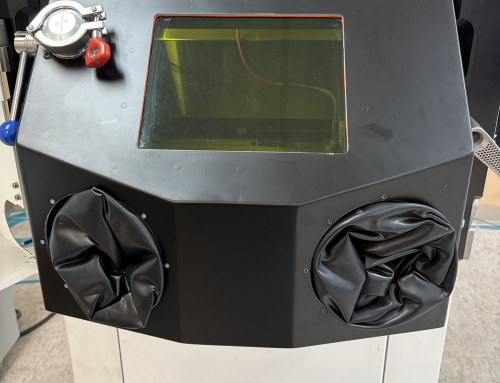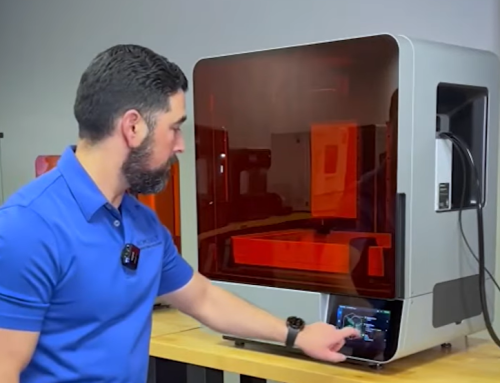A reprint from 3DPrintingindustry.com
Leaders from across the 3D printing industry have hailed the potential of President Joe Biden’s AM Forward program to drive the technology’s wider adoption.
Launched last week, the initiative is designed to promote 3D printing’s uptake by SMEs as a means of helping better secure their supply chains and revitalizing the US manufacturing sector. Initial participants include industry heavy-hitters like GE Aviation, Honeywell, Lockheed Martin, Raytheon and Siemens Energy, while its 3D printing focus has also drawn praise from stalwarts such as Carbon.
“We’re at an undeniable inflection point — bringing digital manufacturing to US businesses will be a critical component to the success of the American economy both now and into the future,” said Carbon CEO Ellen Kullman. “The administration’s acknowledgment of 3D printing to boost the economy is a solid step forward and a proof point that digital manufacturing is critical in addressing our ongoing supply chain challenges and beyond.”
“THE AM FORWARD PROGRAM IS FURTHER VALIDATION OF THE URGENT NEED TO REBUILD AGILE MANUFACTURING CAPABILITIES IN THE US”
With US inflation at its highest rate in 40 years, and both COVID-19 and Russia’s invasion of Ukraine continuing to disrupt global trade, the fragility of the country’s supply chains is being laid bare for all to see. Biden’s AM Forward initiative is essentially a response to these pressures and an attempt to stimulate onshoring by US manufacturers, in particular by encouraging their adoption of 3D printing.
Set to be supported by a new Supply Chain Office, which will be established at the US Department of Commerce by the administration’s Bipartisan Innovation Act (if passed), the program has now seen the creation of a pact between manufacturers and smaller suppliers, designed to help the latter embrace 3D printing.
Through AM Forward, each of the initiative’s five initial contributors have already committed to training the staff of suppliers, as well as offering technical help, engaging in standards R&D and buying up resulting parts. While GE Aviation has said that it will try to buy 30% of its outsourced 3D printed parts from US SMEs, Raytheon will seek to involve them in over 50% of its quotes for printed products.
For its part, Siemens Energy says that it now aims to purchase 20-40% of externally-sourced 3D printed parts from US partners, with Lockheed Martin and Honeywell also offering to aid research into alternatives to forging and casting, and technical assistance in areas like design, data and machine operation respectively.
Backed by the Applied Science & Technology Research Organization (ASTRO), the compact is said to be open to any OEM, provided they are willing to make public commitments to support their suppliers’ adoption of additive manufacturing.
Since its unveiling on May 6, 2022, AM Forward has attracted the praise of industry leaders like John Wilczynski, Executive Director of US 3D printing accelerator America Makes. Wilczynski has commended the initiative as an extension of the organization’s own model of fostering innovation, and given its military leanings, it’s unsurprisingly set to contribute to the program itself moving forwards.
“As America Makes continues to build the foundation for the acceleration of additive manufacturing, the AM Forward program represents a proof of concept for the original vision of the institute – to utilize the public-private partnership model in collaboration with private sector innovation to propel advanced manufacturing industries forward,” explains Wilczynski. “We look forward to working to engage our membership as the program evolves.”
Ric Fulop, CEO of industrial 3D printer manufacturer Desktop Metal, has also voiced his approval for the program. As well as highlighting the similarities between AM Forward’s accessibility goals and those of his own firm, Fulop has praised the initiative for attempting to help unlock the technology’s potential for achieving localized manufacturing at-scale.
“Additive manufacturing has long held the potential to de-risk supply chains and enable new innovations,” adds Fulop. “With manufacturing reshoring already accelerating as a result of the historic supply chain disruption caused by the COVID-19 pandemic, the AM Forward initiative is a timely and progressive approach to modernizing our nation’s outdated manufacturing infrastructure with cutting-edge technologies that will help ensure that the work stays here for the long-term.”







Leave A Comment